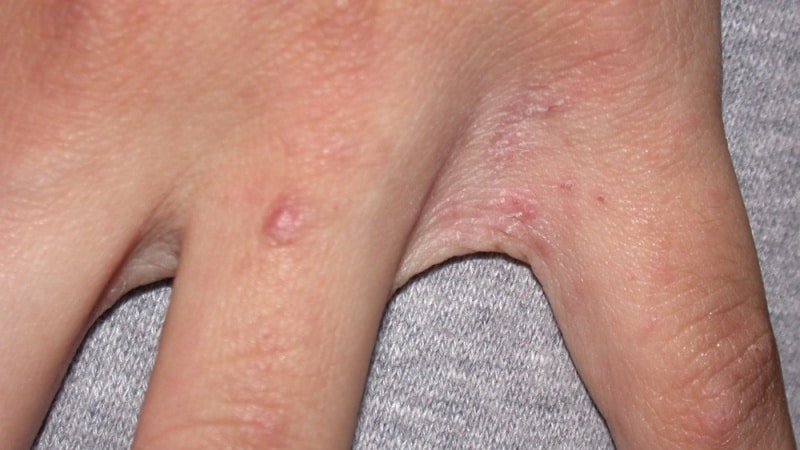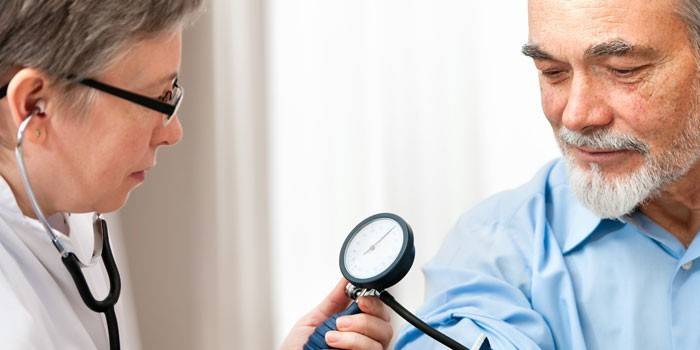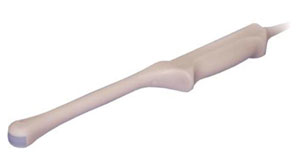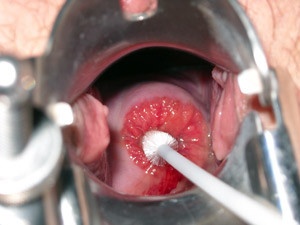Yes, it is. The main thing is to correctly resolve unpleasant situations.
How to break through queues
Clinics provide time for patients who have come for a medical examination. If there is no such schedule, patients can go out of turn.
In fact, it turns out that the ticket is not needed only for the district police officer, but in order to take tests or get to a specialist, you need to go through a lively queue - not always well-disposed. Hence the rumors and gossip.
If we filter out angry comments, a not so bleak picture emerges.
“The longest time I waited for a blood test. I arrived on Monday morning, when the influx of visitors is the most, and doctors advise starting the medical examination on Thursday-Friday. At the ECG rooms, the mammologist closer to dinner there were no queues at all, ”Lydia shares her experience.
“We have special days for this in the clinic, Tuesday and Thursday, and, no matter how indignant, the doctor goes out and calls himself whom he is supposed to, the rest have the remaining days,” says Maria.
“The older the person, the wider the list of examinations. The first stage of the clinical examination involves screening and includes mainly examination of the local therapist, a number of laboratory tests, and diagnostic procedures. If the patient at the first stage, the therapist or even the medical assistant did not find signs of violations that require referral to the second stage, then the medical examination ends, ”explains Tatyana Tvorogova, senior researcher at the State Research Center for Preventive Medicine, candidate of medical sciences. “On average, passing the first stage takes 1 day.”
On the website of the Moscow Department of Health there are useful recommendations on how to reduce the time in the clinic. “In order to minimize time costs, minimize the time required to complete the documentation and fill out documentation at the clinic, we suggest you print out the forms required during the medical examination, answer all questions in advance and come to the clinic with the documents already completed:
1. Informed voluntary consent to medical intervention
2. Questionnaire for the identification of chronic non-communicable diseases. "
How to talk with a doctor so that he listens to you
What to hide, the formal attitude of doctors to the medical examination is not uncommon. But what prevents you from tactfully and politely insisting on a full-fledged screening, since you are already in the clinic and passed the test lineup?
Do not forget about the ethics of communication. Usual: “Hello, [substitute the required first name]”, - already sets you apart from the crowd of angry patients starting the conversation with the phrases “How long can you wait!”
If nothing hurts, is the medical examination not needed?
The disease is easier to prevent, as well as the fact that a number of diseases are asymptomatic. However, the consequences of blind self-confidence in their own health have to face the relatives of the patient with a serious illness.
Well-being does not always mean that a person is completely healthy. Preventive examinations help identify diseases that lead to disability or death in advance. The treatment will be as effective as possible, since the process is always easier to stop before it goes too far. Not everyone can afford to pay for specialist consultations, but you can use the State program of medical examination.
Can I get a physical examination for free
Preventive medical examinations have been introduced on a free basis in the Russian Federation since 2013. According to the results of the examination, the doctors determined that most visitors to the medical centers did not know about their diseases. To take the opportunity to check the state of health, you need to know the rules by which the population is served.
State Medical Examination Program
The order of the Ministry of Health “On the approval of the clinical examination” indicates which categories of the adult population are entitled to be regularly examined for free. The state program is designed to identify groups of diseases that account for up to ¾ of all deaths in the Russian Federation. More often, cardiovascular, pulmonary, oncological diseases and diabetes are fatal.
According to the order of the Ministry of Health, medical examination of the population is carried out throughout the Russian Federation. For adults from the age of 21, a free examination is possible once every three years. There is an abbreviated inspection program, you can use this service once every two years. For certain categories of the population, medical examination is carried out more often - annually.
Clinical examination 2018
People who can undergo a full medical examination for free under the Federal Program must be born between 1928 and 1997. At the same time, the age of a person who can undergo medical examination in a clinic is strictly regulated. If the inspection time is missed, you should expect the next date on which the examination of people of a specific age is planned.
What year of birth fall under the medical examination in 2018
Since not all citizens of the Russian Federation will be able to undergo a free medical examination in 2018, it is worth finding out which years of birth are included in the current list. People born in 1928, 1931, 1934 and so on until 1997 can count on a free professional examination. At the same time, the social status of the patient does not matter - employee, student, housewife.
What is included in the survey
The patient examination program is prepared individually - age, the presence of chronic diseases and gender matter. Each person who receives it receives a “routing sheet”, which indicates a plan for bypassing specialists. The stages of the follow-up are as follows:
- Therapist. The specialist conducts an initial screening - interviews the patient, measures height, weight, blood pressure. The therapist performs a series of rapid tests for cholesterol and blood sugar for free. Further, the doctor gives a referral to general and biochemical blood tests, general urine analysis.
- Since 2018, a new examination has been introduced - a blood test for HIV infection.
- Women go to the gynecologist. The examination includes an oncological examination - the doctor takes a smear from the cervix for cytology to detect cancer at an early stage.
- Men go to the urologist. The doctor will detect prostatitis, prostate cancer and other diseases of this type.
- All age groups receive a referral to electrocardiography, fluorographic scanning of the chest organs for early detection of heart diseases and bronchopulmonary diseases. According to the results of the research, the patient is referred for consultation to a cardiologist, pulmonologist.
- Appointed eye examination, consultation of an endocrinologist, dentist.
People who are 39 years old at the time of the clinical examination are prescribed additional studies. Their list also depends on gender:
- Ultrasound of the abdominal cavity and pelvis is performed every 6 years.
- Breast ultrasound for women is planned every three years up to 50 years, then - in a year.
- Glaucoma is being diagnosed - measuring eye pressure.
- From the age of 45, the risk of developing colon cancer increases, so a fecal occult blood test is performed.
- From the age of 51, the patient is referred for examination by a neurologist, and men donate blood for the detection of antigen indicating prostate cancer.
The purpose of the program is to identify signs of chronic noncommunicable diseases, to diagnose the development of oncology. According to the results of the first stage of the examination, the therapist gives direction to tests or consultations of narrow specialists. A medical passport of the patient is created, in which all information about his state of health is entered. After all consultations and analyzes, the therapist assigns one of the three health groups to the ward, on the basis of which the procedures, exercise therapy or treatment are prescribed.
Where to go
Institutions where you can undergo a full examination of the body are strictly regulated. You should contact the clinic to which the patient is attached, according to his place of registration. You can get information about who the local therapist is and the time of the doctor's appointment at the reception. In addition, information about the rules of medical examination is placed on information boards in the clinic.

How to get through
To undergo an examination of the whole body for free, you should start by visiting a local therapist. The doctor prepares a route map and reports on where and when you can take tests and get advice from narrow specialists. All examinations are carried out during working hours, therefore employed citizens should contact the management of their enterprise (place of work) in order to get a day off or a day off during a visit to the clinic. According to the Labor Code, this day should be counted as a worker.
Is it possible to undergo a medical examination in another city
A full examination of the body in a state clinic is carried out only if the patient is attached to it. In order to undergo a medical examination in another medical institution (in your own or another city), you must fill out the “application for attachment” form and submit documents to the registry together with your passport and medical policy. After the administration has prepared the necessary documentation for the patient, it is possible to undergo a medical examination at a new address.
Clinical examination of children
There is a procedure for medical examination of minors, approved by the Ministry of Health of the Russian Federation. These are three categories of physical examination:
- Prophylactic. This is a comprehensive examination of children 1, 3, 7, 10, 14, 15, 16, 17 years old. The examination includes consultations with a pediatrician, ophthalmologist, ENT specialist, endocrinologist, surgeon, orthopedist, dentist, neurologist. Blood tests (general and biochemistry), urine, feces for worm eggs, a coprogram are performed, scraping for enterobiosis is taken. Sometimes the pediatrician prescribes additional examinations
- Preliminary. This examination is carried out before the child enters the institution - kindergarten, school, college, university.
- Periodic. Inspections are carried out annually and are organized in kindergartens and schools. For each age, the volume of research is different.
All types of examinations are carried out in a children's clinic, but sometimes specialists come to school and conduct a physical examination on the spot. Before the medical examination, the child's parents must sign a consent form. If you decide to refuse to examine the child, you must notify the medical institution. Children from 15 years old can personally give consent for a physical examination by filling out the form.
Medical examination of senior citizens
The program of medical examination of the population does not have a separate article governing the examination of pensioners. This category can undergo free medical examination in the clinic on a common basis. Groups of citizens who can undergo a medical examination annually regardless of age are identified:
- disabled participants in hostilities, WWII;
- wWII veterans who have received disabilities due to hostilities, a general illness or injury;
- persons who were prisoners of concentration camps during the Second World War.
Health Examination Center
In 2009, the state program “Healthy Russia” began its work. As part of this project, Health Centers have been launched nationwide. Each region has its own departments of such a center, which are located in city polyclinics or hospitals. The goal of the program is to draw public attention to disease prevention. Health Centers provide the following services.
Muscovites responsibly approached the medical examination - today in the capital. Half of this number have heard unexpected news about their health and have already begun to solve the problems found. For those who have not thought about the medical examination, the site reminds why it needs to be fixed more quickly and how.
1 | Who can undergo a medical examination?
Every adult Muscovite who is attached to the clinic and has an MHI policy can go through all key examinations and get advice from the right doctors.
You can be examined for the first time at age 21 — or the year you turn 21 — and then every three years. For example, if this year you turn 40 or turn 40, you have to wait two years - you missed the opportunity to undergo a medical examination last year.
For those who have missed the right year and do not want to wait, there is routine inspection.
This is almost the same as the medical examination, but it is carried out according to an abbreviated program - only the most necessary is checked.
As well as during the clinical examination, when revealing a medical condition, the patient will be given a referral for additional examinations and consultations. You can get to such an examination by contacting your therapist.
2 | How much will it cost?
Not at all! Every Russian has the right to a free medical examination.
3 | Probably, only general tests will be taken and the pressure measured?
Not at all. All analyzes and standard examinations are carried out at the first stage - screening. At the second stage, each patient has his own program. Depending on the identified health problems or the presence of risk factors, you can undergo, for example, a vascular scan, esophagogastroduodenoscopy, colonoscopy, ophthalmic examinations.
4 | And if I do not want to undergo some examinations, they will force me?
Nobody will force you. According to the order of the Ministry of Health of the Russian Federation on the medical examination of the adult population, which entered into force on January 1, 2013, the patient has the right to refuse some examinations. For example, if he underwent fluorography or MRI during the year, he is exempted from these examinations as part of the medical examination - too often they should not be performed.
Or if you have absolutely no complaints about the gastrointestinal tract and the same amount of desire to swallow the apparatus for gastroscopy, nobody will forcefully look into your stomach.
5 | How long is this?
No, fast. Nobody will put you in the hospital for this. You’ll have to come to your district clinic several times to get tested, undergo special examinations, for example, ultrasound, MRI, and talk with doctors. Each visit can last for two to three hours, but in general you will not lose much time.
6 | Where to sign up?
In the clinic to which you are assigned. Go straight to your therapist and name the coveted word - and then they will explain everything to you.
The purpose of the medical examination: early detection of chronic non-communicable diseases, which are the main cause of disability and premature mortality of the population of the Russian Federation (hereinafter referred to as chronic non-communicable diseases), which include:
circulatory system diseases and, primarily, coronary heart disease and cerebrovascular diseases
malignant neoplasms
diabetes
chronic lung diseases and others
These diseases constitute about 70% in the structure of the causes of all mortality in the population of our country. In addition, the clinical examination is aimed at identifying and correcting the main risk factors for the development of these diseases:
High blood pressure
High blood cholesterol
High blood glucose
Tobacco smoking
Harmful alcohol consumption
Poor nutrition
Low physical activity
Overweight or obesity
The use of narcotic drugs and psychotropic substances without a doctor's prescription
An important feature of the clinical examination is not only the early detection of chronic non-communicable diseases and risk factors for their development, but also the conduct of brief preventive counseling for citizens with these risk factors, as well as individual in-depth preventive counseling or group counseling for citizens with identified risk factors for developing chronic non-communicable diseases. preventive counseling (patient's school) in the department of medical prophylaxis ki or health center.
Such active preventive interventions will quickly and significantly reduce the likelihood of developing for each individual person dangerous chronic non-infectious diseases, and for people already suffering from such diseases, significantly reduce the severity of treatment of the disease and the incidence of complications.
Where and when can I be examined?
Citizens undergo a medical examination in a medical organization in which they receive primary health care: in a polyclinic, in a center (department) of general medical practice (family medicine), in a medical outpatient clinic, or a medical unit.
Your local doctor (paramedic) or local nurse or an employee of the prophylaxis department (office) of a medical organization will tell you in detail where, when and how you can go for a medical check-up, agree with you on the estimated date and period of the medical check-up.
Most of the activities within the framework of the medical examination are carried out once every 3 years, after 40 years the medical examination is carried out annually.
How long does the examination take?
For the examination of the first stage of the clinical examination (screening), as a rule, two visits are required. The first visit takes approximately 3 to 6 hours, while the volume of examination varies significantly depending on your age.
The second visit is carried out to the local doctor for a final examination and summing up the results of the medical examination. Typically, the interval between visits is from 1 to 6 days and depends on the length of time required to obtain the research results.
If according to the results of the first stage of the clinical examination, you need additional examination, individual in-depth preventive counseling or group preventive counseling (the patient’s school), the local doctor (therapist) informs you about this and sends you to the second stage of the clinical examination, the duration of the passage of which depends on the amount of additional examination you need. .
How to undergo a medical examination?
The list of examinations by medical specialists (paramedic or midwife), studies and other medical events conducted as part of the medical examination, depending on the age and gender of the citizen (the volume of the medical examination), is determined by the Procedure for the medical examination of certain groups of the adult population, approved by order of the Ministry of Health of Russia No. 124n dated 13.03. 2019 It should be noted that when passing the medical examination, the year of birth of citizens is taken into account, and not the number and month!
For example: to undergo a medical examination, a citizen turned to the clinic, whose date of birth is 07/04/1989. He can undergo a medical examination in the period from 01/01/2019 to 12/31/2019. This means that it is possible to undergo a medical examination at any convenient date according to the operating mode of the medical organization during the entire calendar year, including until the age specified by order is reached.
According to Order of the Ministry of Health of Russia dated 13.03.2019 N 124н “On Approving the Procedure for Conducting Preventive Medical Examination and Clinical Examination of Certain Adult Populations”, the executive authorities of the constituent entities of the Russian Federation in the field of health protection ensure that citizens undergo preventive medical examinations and medical examinations, including in the evening hours and Saturdays, and also provide citizens with the opportunity to remotely make appointments (examinations, consultations) by medical professionals, using research and other medical interventions carried out in the framework of preventive medical examinations and clinical examination.
A number of dangerous diseases at an early stage are asymptomatic. By diagnosing it in time, many of these diseases can be cured.
If you are over 21 years old and your age is divided into three, contact your clinic, undergo a free examination.
The main goals of the clinical examination:
Early detection of chronic non-communicable diseases, which are the main cause of disability and premature mortality in the Russian Federation (hereinafter referred to as chronic non-communicable diseases), which include:
- diseases of the circulatory system, and primarily coronary heart disease and cerebrovascular diseases;
- malignant neoplasms;
- diabetes;
- chronic lung disease.
These diseases account for more than 75% of all mortality in the population of our country. In addition, the clinical examination is aimed at identifying and correcting the main risk factors for the development of these diseases, which include:
- high blood pressure;
- high blood cholesterol;
- increased blood glucose;
- tobacco smoking;
- harmful alcohol consumption;
- poor nutrition;
- low physical activity;
- overweight or obesity.
An important feature of the clinical examination is not only the early detection of chronic non-communicable diseases and risk factors for their development, but also the conduct of brief preventive counseling for all citizens with these risk factors, as well as for individuals with a high and very high total cardiovascular risk of individual in-depth and group (school patient) preventative counseling. Such active preventive interventions can quickly and significantly reduce the likelihood of developing for each individual person dangerous chronic non-infectious diseases, and for people already suffering from such diseases, significantly reduce the severity of the disease and the incidence of complications.
Where and when can I have a medical examination?
Citizens undergo medical examination in a medical organization at the place of residence, work, study or citizen's choice, in which they receive primary health care (in a clinic, in a center (department) of general medical practice (family medicine), in a medical outpatient clinic, medical unit, etc. .). Your local doctor (paramedic) or local nurse or receptionist will tell you in detail where, when and how you can get a medical check-up, agree with you on the estimated date (period) of the medical check-up.
How long does the examination take
The examination of the first stage of the clinical examination, as a rule, requires two visits. The first visit takes approximately 3 to 6 hours (the volume of the examination varies significantly depending on your age). The second visit is usually carried out after 1-6 days (depending on the length of time required to obtain the results of the studies) to the local doctor for a final examination and summing up the results of the medical examination.
If, according to the results of the first stage of the clinical examination, you have revealed a suspicion of a chronic non-communicable disease or a high and very high total cardiovascular risk, the local doctor informs you about this and sends you to the second stage of the medical examination, the duration of the passage of which depends on the amount of additional examination you need.
How to get a medical examination for a working person
According to Article 24 of the Federal Law of the Russian Federation dated November 21, 2011 No. 323-ФЗ “On the Basics of Protecting the Health of Citizens in the Russian Federation”, employers are required to provide conditions for employees to undergo medical examinations and medical examinations, as well as to freely let employees go for them.
What preparation is needed for the medical examination:
- To undergo the first stage of the clinical examination, it is advisable to come to a medical institution (clinic) in the morning, on an empty stomach, before performing any physical exertion, including morning exercise.
- Take with you a morning dose of urine in a volume of 100-150 ml. Before collecting urine, a thorough toilet of the genitals should be done. To collect urine and feces, it is preferable to use industrially produced special containers (small containers) for bioassays, which can be purchased at a pharmacy. For urine analysis, you need to collect an average portion of urine (start urinating, and then after 2-3 seconds, substitute a container to collect the analysis). Given the fact that some products (beets, carrots) are able to stain urine, they should not be consumed during the day before the collection of material. Also, citizens who take diuretic drugs should stop taking them if possible, since these drugs change the specific gravity, acidity and amount of urine excreted. A relative limitation is the menstrual period in women. It is advisable that a urine sample be delivered to the laboratory within 1.5 hours after collection. Urine should be transported only at a positive temperature, otherwise the precipitated salts can be interpreted as a manifestation of renal pathology, or the study process will be completely complicated. In this case, the analysis will have to be repeated.
- For persons aged 45 years and older, in order to study feces for occult blood, in order to avoid false-positive results, for 3 days before the examination, do not eat meat food, as well as other products, which include a significant amount of iron (apples, green onions, sweet Bulgarian pepper, white beans, spinach), as well as vegetables containing a lot of enzymes such as catalase and peroxidase (cucumbers, horseradish, cauliflower), exclude the use of iron-containing drugs, including hematogen, cancel if eat ascorbic acid, acetylsalicylic acid (aspirin) and other non-steroidal anti-inflammatory drugs (such as voltaren, diclofenac, etc.), refuse to use any laxatives and enemas. When carrying out an analysis of feces by the immunochemical method, food restrictions are not required (specify the research method used by your local nurse doctor or in the room 53 of medical prevention). Avoid over-diluting the stool sample with water from the toilet bowl. This may be causing the wrong result.
- On the container with urine and feces it is necessary to place a sticker with your name and initials.
- Women need to remember that the collection of smears from the cervix is \u200b\u200bnot carried out during menstruation, during any treatment of infectious and inflammatory diseases of the pelvic organs, to reduce the likelihood of obtaining false smear analysis results, it is necessary to exclude sexual contact for 2 days before medical examination, cancel any vaginal preparations, spermicides, tampons and douching.
- Men over the age of 50 need to remember that it is better to refrain from undergoing medical examination for 7-10 days after any effects on the prostate gland of a mechanical nature (rectal examination, massage of the prostate, enema, riding a horse or a bicycle, sexual intercourse, rectal treatment candles, etc.) as they can distort the result of the study of a prostate-specific antigen in the blood (prostate cancer tumor marker).
- If you have undergone medical research in the current or previous year, take documents confirming this and show them to medical personnel before starting the medical examination.
- The amount of preparation for the second stage of the medical examination will be explained to you by the local doctor (paramedic).
What document does a citizen receive based on the results of medical examination?
Each citizen who has undergone medical examination is issued a Health Certificate, which contains the main conclusions (conclusions, recommendations) based on the results of the survey.
Regular medical check-ups will allow you to significantly reduce the likelihood of developing the most dangerous diseases that are the main cause of disability and mortality in our country or to identify them at an early stage of development, when their treatment is most effective








